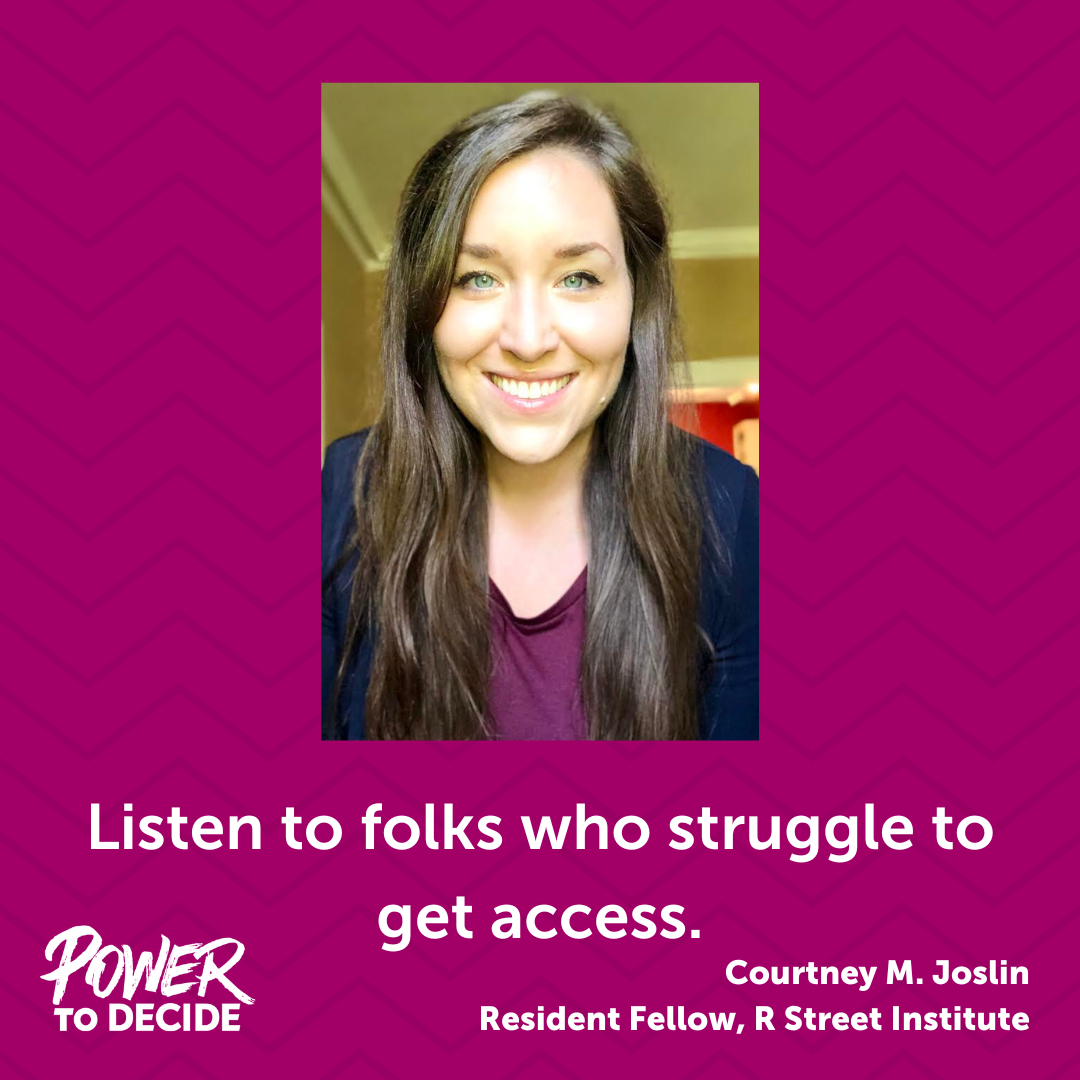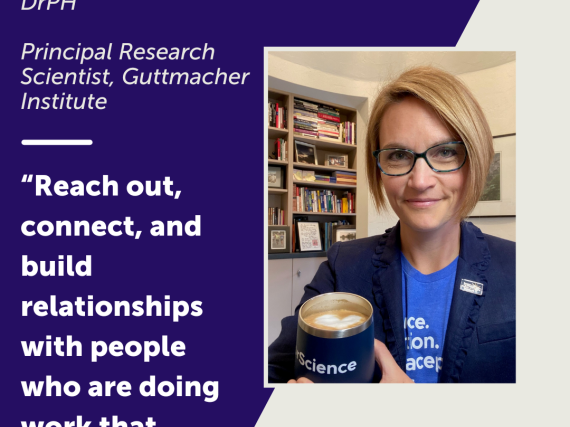December 2022 Power Player
At Power to Decide, we’re committed to uplifting the many individuals on the ground doing the work that matters most. Each month we highlight an individual who is championing the effort to support young people’s reproductive well-being. Check out this month's Power Player profile.
Courtney M. Joslin, she/her
Resident Fellow, R Street Institute
What work have you done to ensure that all people have the information and access they need to make decisions that align with their intentions and improve their reproductive well-being?
In my work, my primary focus has been on how governmental rules and regulations hinder access to contraception. A person’s well-being is based on their assessment of their own needs and their ability to meet those needs. History has shown that increased government intrusion into individuals’ lives imposes higher barriers that people face to meeting their own needs, and the end result is poorer societies. This equally applies to birth control policies; when people have the information about and access to their preferred contraceptive methods, they can make the best decisions for themselves and their families. In the United States, it is generally agreed upon that many forms of birth control are overly difficult to obtain because regulations impose high barriers. I have worked to reduce these barriers on the state and federal levels, like allowing pharmacists to prescribe or dispense some hormonal birth control methods and making safe and effective methods available completely over the counter.
How did you get started in your field? What is your driving force?
Before starting this work, I had spent the majority of my career studying how allowing markets to flourish leads to economic mobility, improved well-being, and innovative solutions to today’s issues. Then I moved to Alabama, where I experienced firsthand how something I took for granted—access to primary care—was difficult to come by. It took me days of calling doctor’s offices and clinics to finally find a provider that was accepting new patients (and for appointments weeks away, no less). I thought, if it takes me this long to find a doctor, even with the ability to drive myself to an appointment without having to secure childcare or worry about having predictable time off from work, how might others struggle to get care they need? I became interested in contraceptive care and how there may be unnecessary barriers to access from an economic standpoint. The concept of allowing markets to flourish—which includes eliminating outdated regulations and lessening governmental involvement in certain sectors—as it turns out, very much applies to contraceptive access in the United States. If the medical community agrees that prescription barriers to some contraceptive methods are unnecessary today, then policymakers should follow suit.
What advice would you give to someone looking to effect change in the field that you currently work in?
My primary advice would be to listen to folks who struggle to get access . There are plenty of reasons for lack of access, and these should drive the proposed solutions. For example, if the primary hurdle is that there isn’t a doctor’s office or clinic within 60 miles, then the solution is to find closer points of access like pharmacists. Telehealth can also do wonders for access, but not for those in communities without reliable internet. There is no silver bullet for improving contraceptive access, and we need robust solutions that meet people where they are.
Why should someone care about ensuring that all people—regardless of who they are or where they live—have the information and access they need to live their best life?
Having that information and access isn’t a silo that only improves one person’s life. The ability to get preferred birth control methods without hassle means fewer unintended pregnancies, improved health outcomes for mothers and babies, reduced health care expenditures, and higher lifetime earnings. What community wouldn’t strive for those?


